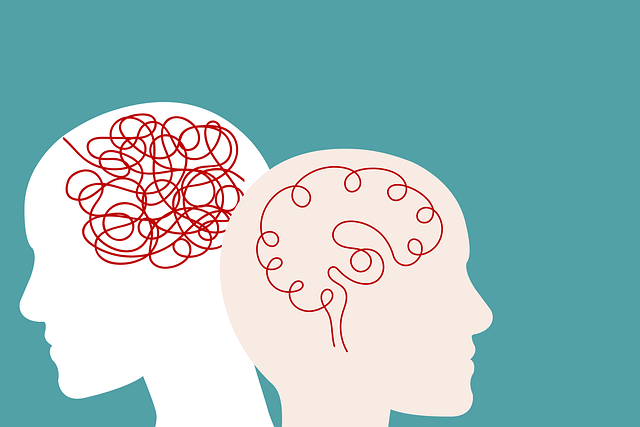Denver ADD-ADHD Therapy: Nurturing Self-Care for Optimal Well-being
Self-care is a powerful tool for managing ADD/ADHD, encouraged in Denver ADD-ADHD therapy settings……..
In the ever-evolving landscape of mental health care, Denver ADD-ADHD Therapy (Attention Deficit Hyperactivity Disorder) has emerged as a game-changer, offering hope and improved outcomes for individuals navigating this complex neurodevelopmental disorder. This comprehensive approach goes beyond traditional treatments, embracing a multi-faceted strategy to address the unique challenges faced by those affected by ADD-ADHD. In this article, we embark on a journey through the intricacies of Denver ADD-ADHD Therapy, exploring its origins, global reach, and profound impact on lives. By delving into various aspects, from economic implications to technological innovations, we aim to provide a holistic understanding of this transformative therapy.
Denver ADD-ADHD Therapy is an evidence-based treatment paradigm designed to support individuals with Attention Deficit Hyperactivity Disorder (ADD/ADHD) across all ages and stages of life. It represents a departure from conventional treatments, adopting a holistic view that considers biological, psychological, and environmental factors contributing to the disorder. This therapy is characterized by several core components:
Individualized Assessment: Each patient’s unique needs are assessed through comprehensive evaluations, including medical history, behavioral observations, and psychometric tests. This tailored approach ensures that treatment strategies are specifically designed for each individual.
Multi-Modal Treatment: Recognizing the multifaceted nature of ADD/ADHD, therapy encompasses a combination of behavioral interventions, cognitive training, medication management, and parental/caregiver education. This integrated method addresses symptoms from multiple angles, promoting sustainable improvements.
Behavioral Therapy: At the heart of Denver ADD-ADHD Therapy lies behavioral modification techniques. These include strategies like Positive Reinforcement, Structure and Routine Establishment, and Cognitive Behavioral Therapy (CBT). By teaching individuals new coping skills and modifying problematic behaviors, this approach enhances focus, impulse control, and overall functionality.
Cognitive Training: Targeting specific cognitive deficits associated with ADD/ADHD, cognitive training involves exercises designed to improve attention, working memory, and executive functions. Neurofeedback, a popular technique, provides real-time feedback to help individuals learn self-regulation and optimize brain function.
Medication Management: In conjunction with other interventions, medication plays a crucial role in managing ADD/ADHD symptoms. Stimulant and non-stimulant medications are carefully prescribed and monitored to ensure optimal effectiveness and minimal side effects.
Historically, ADD-ADHD therapy has evolved from early behavioral interventions to the more sophisticated multi-modal approach seen today. The shift towards a holistic understanding of the disorder gained momentum in the late 20th century, with significant milestones including:
Denver ADD-ADHD Therapy has transcended geographical boundaries, leaving an indelible mark on mental health care globally. Key trends shaping its international impact include:
Increasing Diagnosis Rates: Worldwide, the diagnosis of ADD/ADHD is on the rise, driven by heightened awareness and more sophisticated assessment tools. The World Health Organization (WHO) estimates that 5-7% of children and adolescents globally are affected by ADD/ADHD, with significant underdiagnosis in low-income regions.
Cultural Adaptations: As therapy practices are adopted internationally, cultural sensitivity becomes paramount. Therapists adapt treatment protocols to align with local beliefs, values, and parenting styles, ensuring cultural acceptability and effectiveness.
Collaboration and Training: Global collaborations among mental health professionals foster the exchange of knowledge and best practices. Workshops and training programs enable therapists to stay updated on the latest research and therapeutic techniques, enhancing their expertise.
Digital Therapies: The integration of technology has revolutionized ADD-ADHD therapy, making interventions more accessible and engaging. Online platforms offer remote counseling, cognitive training apps, and digital behavior tracking tools, catering to diverse populations worldwide.
The economic landscape surrounding Denver ADD-ADHD Therapy is complex and multifaceted, with various stakeholders involved. Here’s a breakdown of key aspects:
| Stakeholder | Role & Impact |
|---|---|
| Patients/Families: Direct consumers of therapy services, their financial investment in treatment can vary significantly based on location and insurance coverage. Access to affordable care is a critical factor influencing treatment outcomes. | Represent the primary beneficiaries, with improved symptoms leading to enhanced quality of life and potentially reduced long-term healthcare costs. |
| Healthcare Providers: Clinicians, psychologists, and psychiatrists offering ADD-ADHD therapy services. They contribute to economic activity through service fees, with their expertise determining treatment efficacy and patient satisfaction. | Drive the supply side of the market, and their availability and specialization influence access to care. |
| Insurance Companies: Major players in funding mental health care, they set coverage policies and reimbursement rates for ADD-ADHD therapy. Their involvement shapes the financial accessibility of treatment. | Influence the affordability of therapy by determining what services are covered under healthcare plans. |
| Government Agencies: Public health bodies fund and regulate mental health services, ensuring quality and access. They also play a role in providing direct care through public clinics. | Contribute to the overall economic sustainability of ADD-ADHD therapy by supporting research, training, and service delivery infrastructure. |
Market dynamics are influenced by regional healthcare systems, insurance regulations, and cultural attitudes towards mental health. For instance, countries with robust public healthcare systems may offer more accessible ADD-ADHD therapy compared to private-pay models in other regions.
Technology has emerged as a powerful enabler of Denver ADD-ADHD Therapy, revolutionizing treatment delivery and accessibility:
Telehealth: Online counseling platforms allow individuals to access therapy remotely, overcoming geographical barriers. This is particularly beneficial for rural or underserved populations, ensuring continuity of care.
Cognitive Training Apps: Mobile applications offer targeted cognitive exercises tailored to individual needs. These apps provide accessible, engaging, and measurable tools for improving attention and executive functions.
Digital Biofeedback: Wearable devices enable real-time monitoring of physiological responses, helping individuals learn self-regulation. This technology supports the training of mindfulness and emotional control, essential skills for ADD/ADHD management.
AI-Assisted Therapy: Artificial Intelligence (AI) is being explored to personalize treatment plans and predict outcomes. AI algorithms can analyze vast amounts of patient data to identify patterns and suggest customized interventions.
These technological innovations not only enhance the accessibility and flexibility of therapy but also hold promise for improving treatment outcomes through precise, data-driven approaches.
The regulatory environment surrounding ADD-ADHD therapy varies across regions, influencing its delivery and reimbursement. Key policies and regulations include:
Health Insurance Portability and Accountability Act (HIPAA): In many countries, including the US, HIPAA sets privacy and security standards for protected health information. Therapists must adhere to these rules when handling patient data.
Medication Regulations: Prescribing and dispensing medications for ADD/ADHD are strictly regulated to ensure safe and effective use. Authorities monitor medication usage, side effects, and potential abuse.
Mental Health Parity Laws: These laws promote equal access to mental health care by mandating that insurance companies provide coverage for behavioral health services at a level comparable to physical health care.
Cultural and Ethical Guidelines: Professional associations develop guidelines to ensure culturally sensitive and ethical practice. These guidelines address issues like informed consent, confidentiality, and cultural competency in therapy.
Navigating these policies is crucial for therapists and healthcare providers, as they must stay updated on legal requirements to maintain compliance and deliver quality care.
Despite its proven effectiveness, Denver ADD-ADHD Therapy faces several challenges and criticisms that require thoughtful consideration and strategic solutions:
Stigma and Misunderstanding: ADD/ADHD is often stigmatized, leading to misconceptions about the disorder and its treatment. This stigma can deter individuals from seeking help, hindering access to care.
Lack of Trained Professionals: The demand for specialized ADD-ADHD therapists far exceeds the current supply in many regions. Increasing training programs and attracting professionals to this field are essential to meet growing needs.
Cost and Accessibility: Despite improvements, therapy remains financially inaccessible for many due to high costs and limited insurance coverage. Addressing these issues is crucial for ensuring equitable access.
Individualized Treatment: While tailored treatment is a strength of Denver ADD-ADHD Therapy, it also presents a challenge in terms of time and resource intensity. Developing efficient models that maintain personalization is an ongoing task.
The following case studies highlight the practical application of Denver ADD-ADHD Therapy and its transformative impact on individuals’ lives:
Case Study 1: Sarah’s Journey to Focus and Confidence
Sarah, a 12-year-old girl, was diagnosed with ADD/ADHD after struggling in school and at home. Through Denver ADD-ADHD Therapy, she underwent cognitive training exercises aimed at improving her attention and working memory. Additionally, her parents learned strategies for structure and routine establishment at home. After six months of consistent therapy, Sarah experienced significant improvements:
Case Study 2: Michael’s Transition to College Life
Michael, a 19-year-old young man, was referred for therapy after struggling to adjust to college academics and social demands. He received a combination of behavioral therapy and medication management. The therapy focused on developing executive functions, time management skills, and social interaction strategies. Within a few months:
The field of Denver ADD-ADHD Therapy is poised for continued growth and innovation, with several emerging trends shaping its future:
Personalized Medicine: Advancements in genomics and neuroscience will enable more tailored treatment approaches, considering individual genetic profiles and brain function.
Digital Health Integration: The integration of digital health technologies will continue to enhance therapy delivery, offering remote support, cognitive training, and real-time feedback.
Neurofeedback as a First-Line Treatment: Growing evidence supports neurofeedback as an effective stand-alone treatment or adjunctive therapy for ADD/ADHD, potentially reducing reliance on medication in some cases.
Global Collaboration and Standardization: Increased global collaboration will lead to the development of standardized assessment tools and treatment protocols, ensuring consistent quality care worldwide.
Focus on Preventive Measures: Future efforts may shift towards early identification and intervention, aiming to prevent or minimize the impact of ADD/ADHD symptoms before they become more severe.
Denver ADD-ADHD Therapy represents a significant milestone in the journey towards understanding and supporting individuals with Attention Deficit Hyperactivity Disorder. Its multi-faceted approach, backed by substantial research and real-world applications, offers hope and improved outcomes. As we look ahead, the therapy’s global reach and evolving landscape suggest a brighter future for those affected by ADD/ADHD.
Through comprehensive treatment, increased access to care, and ongoing research, individuals can unlock their full potential, navigating life with greater focus, confidence, and success. The path forward involves continued collaboration among professionals, policymakers, and researchers to address challenges and capitalize on emerging opportunities, ultimately shaping a more inclusive and supportive world for those living with ADD/ADHD.
Q: How does Denver ADD-ADHD Therapy differ from traditional treatments?
A: Traditional treatments often focus on medication management alone. In contrast, Denver ADD-ADHD Therapy takes a holistic approach, integrating behavioral interventions, cognitive training, and parental education to address the multi-faceted nature of ADD/ADHD.
Q: Is ADD/ADHD a real medical condition, or is it just a behavior issue?
A: ADD/ADHD is recognized as a legitimate neurodevelopmental disorder by leading healthcare organizations worldwide. It is not simply a behavioral issue but rather a difference in brain function that affects attention, impulse control, and hyperactivity.
Q: Can medication be used to treat ADD/ADHD in children?
A: Yes, medication plays a crucial role in managing ADD/ADHD symptoms in both children and adults. Stimulant and non-stimulant medications are carefully prescribed by healthcare professionals to improve focus, reduce impulsivity, and enhance overall functioning.
Q: How effective is cognitive training for ADD/ADHD?
A: Cognitive training has shown significant benefits in improving attention, working memory, and executive functions in individuals with ADD/ADHD. Neurofeedback, a popular cognitive training technique, is particularly effective in teaching self-regulation of brain activity.
Q: Are there any risks associated with ADD-ADHD Therapy?
A: While generally considered safe and effective, all therapeutic interventions carry some level of risk. Side effects from medication, for example, should be monitored and managed by healthcare providers. The key is to carefully balance the benefits against potential risks during treatment planning.

Self-care is a powerful tool for managing ADD/ADHD, encouraged in Denver ADD-ADHD therapy settings……..

Positive thinking exercises, accessible through specialized therapy like Denver ADD-ADHD Therapy, ar…….